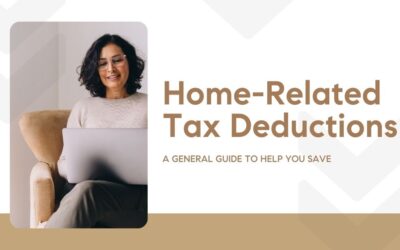Many clients ask me about the sale of their home capital gains taxes they may owe. Capital gains are the difference between how much you pay for a capital asset how much you sell it for. These gains can have important tax considerations when you sell your home. Home sale capital gains tax rates vary depending on how long you have owned your home, and whether or not it is a primary residence. While this article is not advice on how you file your taxes, it is intended to help you understand how home sale income is treated from a tax perspective.
What purchases are subject to capital gains taxes?
Capital gains treatment only applies to “capital assets” such as stocks, bonds, jewelry, coin collections, and real estate property. You only realize capital gains when you sell the asset. The fact that an asset may have appreciated during the period you own it has no impact on your taxes. There are two classes of capital gains: Short-term and Long term.
- Short term capital gains are gains from a capital asset sale within a year after purchase. These gains are taxed at the same amount as your normal income. For example, if you’re in a 30% tax bracket based on your income, you would pay the same tax rate on any short term capital gains during that fiscal tax year.
- Long-term capital gains occur when you sell a capital asset more than one year after you purchase it. These gains are taxed at lower, variable rates based on the amount of the gain and your tax filing status.
Long-term capital gains rate table
You can see from the table that most people will receive a tax benefit with a long-term capital gain opposed to a short-term gain. For example, if you are in a 30% tax bracket and buy a house for $650k and sell it for $700k in less than a year, you will pay 30% capital gain tax on the $50k difference or $15k. If you held the same home for at least a year you would still have gains of $50k but would only pay 15% in long-term capital gains taxes or a total of $7,500.
To get an estimate of taxes you might have to pay when selling your home you can take a look at this capital gains on property calculator.
Home capital gains expemptions
It is important to note that there is a special exemption when selling your primary residence. You can exempt up to $500k in capital gains from taxes for married couples filing jointly ($250k for an individual) if you occupy the home for at least 2 of the past 5 years. The only condition where this doesn’t apply is if you have taken the exemption from another home within the same 5 year period.
Do home upgrades impact my capital gains?
There are a number of factors that impact the amount of your property gains. Any increase in the base value of your property can reduce the difference between the value and the final sale price. Significant repairs and improvements to your home can be added to the basis, which may reduce the capital gains. Also, capital losses from other assets can offset the total gains.
I’m happy to advise you on the role that your home sale plays in your overall financial plan and I also can make recommendations to a qualified tax accountant or attorney to determine the best strategy for your specific situation. More information on the tax treatment of capital gains taxes can be found aat the IRS website: https://www.irs.gov/taxtopics/tc701.




